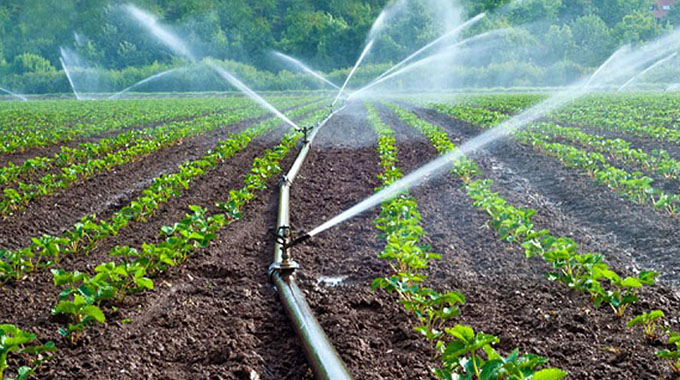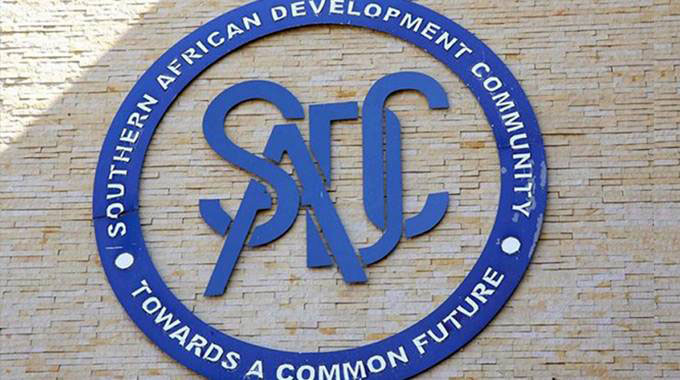Digital platforms change face of agric sector

Elita Chikwati Senior Agriculture Reporter
Farmers and extension staff will now benefit from three online platforms that will offer training, specialised information and agricultural solutions, as the Government goes overdrive in increasing productivity, value addition and ensuring all farmers rapidly boost their incomes and standards of living.
Agriculture is a key component of National Development Strategy One (NDS1) and the Government was leaving no stone unturned in its quest for national food security and ensuring that the vast number of small-scale farming families move from subsistence agriculture to becoming proper commercial farmers growing and selling surpluses of food and cash crops so that they enter the formal economy and become middle-income with the rest of the country.
The online programme was jointly launched yesterday by the Ministry of Lands, Agriculture, Fisheries, Water and Rural Resettlement in conjunction with Zimbabwe Agriculture Knowledge and Innovation Services (ZAKIS).
This comes at a time when Covid-19 and its containment measures were making it difficult for farmers and extension workers to interface.
The platforms are online lead farmer training, Zim Agric in-service training app and Zim-AgriHub.
Zim-AgriHub is a virtual agricultural centre of excellence that aims to complement agricultural training and research institutions.
Agro dealers and other companies can advertise their services and products on the platform, while stakeholders can get policy updates.
The platform targets researchers, extensionists, lecturers, students, other stakeholders in the sector plus all farmers.
Zim-Agric extension in-service training app is largely for extension staff to upgrade their skills and keep them up to date.
It is a mobile in-service training application offering short-term refresher courses to extension staff in crop and livestock production, farm management and marketing and policy-related issues.
The course’s curriculum includes practicals which will be done and assessed at the nearest agricultural colleges.
This particular app offers self-assessment and evaluation questions at the end of each course. After six months there will be an examination and participants will be awarded a certificate.
Capacity building on how to use the app has already started and in progress and 623 extension staff have so far registered on the app.
The lead farmer online training programme designed for the higher level of farmers themselves.
It is a virtual platform meant to produce a farmer graduate who takes farming as a business and produces for a local and export market.
The programme targets farm managers, supervisors, farm owners and anyone who aspires to be a lead farmer. This farmer will be trained virtually, and practicals will be done at the nearest agricultural college.
The traditional Master Farmer training will continue. This targets mainly communal farmers, farmers in the old resettlement farmers and A1 farmers. Between them these three groups combine the bulk of the farming families and the Government sees moving them into the commercial world as critical in creating an upper middle-income country by 2030.
Officially launching the online platforms, Lands, Agriculture, Fisheries, Water and Rural Resettlement Permanent Secretary Dr John Basera said capacitation of extension workers was key to the attainment realisation of the Ministry’s blue prints and attainment of Vision 2030.
“The development thrust focusses on empowering farmers as well as agricultural extension officers. This is in view of the need to keep their skill sets abreast to the dynamic changes in the farming landscape. Our agriculture will now employ a robust innovation service that empowers extensionists, farmers, researchers, students and other stakeholders,” he said.
Dr Basera said the initiatives were going to boost agricultural production surpassing the achievements of the lst summer season which saw a growth of 34 percent against a target of 11 percent.
“As the country moves towards becoming an upper middle-income society by 2030, we need to adopt a completely new approach and exploit the potential of ICTs by developing appropriate and cost-effective applications that can improve the country’s productivity and competitiveness.
“Various ICT applications and solutions can improve industrial processes and quality of products, increase agricultural yields, enhance teaching and learning whilst positively transforming lives including those of farmers,” he said.
ZAKIS head of project Mr Waddilove Sansole said Zimbabwe had a proud history and track record of agriculture research and agriculture training skills spread across the region and the continent.
“ZimAgriHub presents an opportunity as the virtual agricultural centre of excellence to make all this knowledge available in a one stop shop.
“We are finalising the set-up of special printer that can digitalise hard copy archives. “Many countries in the region are grappling with strengthening of extension services and we have just unlocked the power of digital4Agriculture through the training app,” he said.










Comments